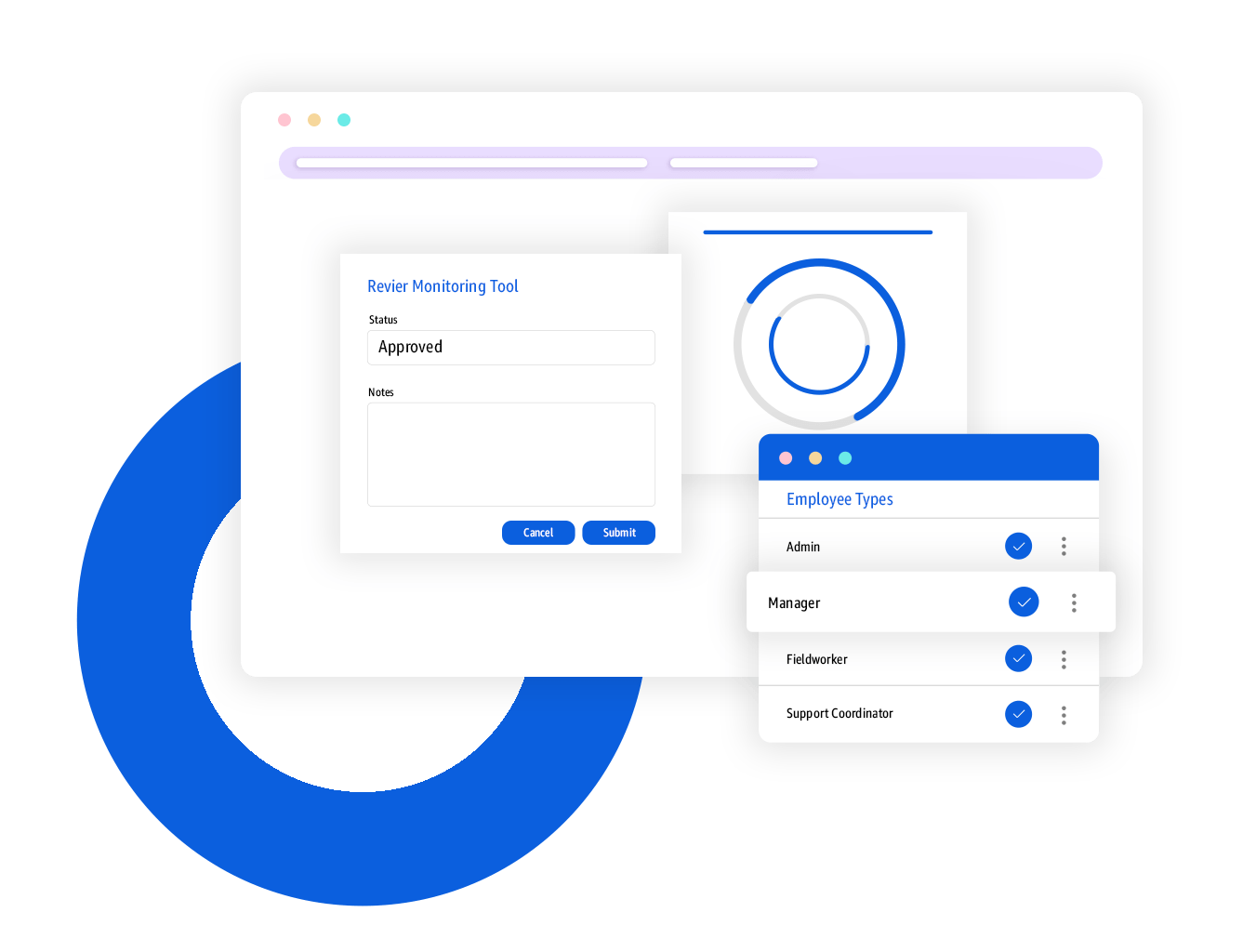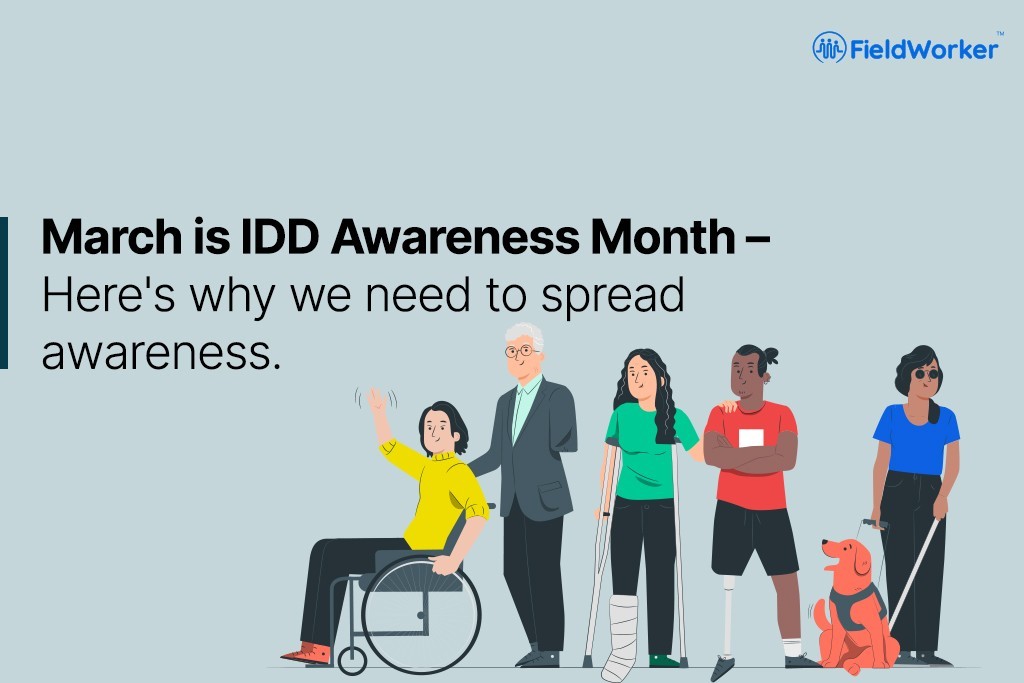Since 1987, March has been recognized as Developmental Disabilities Awareness Month here in the US. Originally, it was intended to raise awareness of conditions covered by this term, and call attention to the need to provide opportunities for those living with such conditions.
Now more than 30 years later, there may be more awareness of certain developmental disabilities, but there’s still a lot more to be done. Here’s why we think it’s essential to recognise March as IDD Awareness Month.
IDD isn’t just one thing.
IDD is an umbrella term, and encompasses many conditions. Each of these conditions is associated with its own challenges, which is why it’s important to avoid grouping all individuals with IDDs together.
Some more common conditions that are classified as IDDs include:
- Autism
- Cerebral Palsy
- Down’s Syndrome
- ADHD
- Fragile X Syndrome
- Vision Impairment
- Hearing Impairment
Even from these, most people will be aware that one condition in itself such as autism can cover a whole spectrum of different characteristics with varying severity, so even individuals with the same condition may have vastly differing needs.
For each individual, don’t be afraid to ask them or people in their support network if there’s anything you can do to support them or improve their environment, and use this month as a time to learn a little more about each of these conditions. Check out one of our earlier posts for an overview of IDDs.
Those living with IDD still face discrimination.
According to the Disability Justice organization, who fight for equal rights and justice for individuals living with IDDs who experience discrimination, people with developmental disabilities are regularly dehumanized and devalued.
This is in part due to harmful stereotypes that exist, arising from a complete lack of understanding about what it means to live with an IDD. These stereotypes often dehumanize these individuals completely, making it seem that they don’t have the same feelings and thoughts as others and are unable to contribute to society. And what’s worse – all individuals with any kind of IDD are often lumped together into one homogenous group, meaning the intricacies of each of their individual conditions and needs are completely lost.
For those of us working in care, we know that every individual living with an IDD is unique, with completely personal needs and requirements. And beyond this, each has their own special talents, interests and skills, with many capable of finding work in a community so long as there is a basic understanding of their needs.
Indeed, sometimes just an understanding of the condition a person has is sufficient, but there may be other small adaptations that employers can make to ensure the comfort and success of employees with IDDs.
Inequality hidden in plain sight.
While issues of racial and gender inequality may be more visible in the media, comparatively issues relating to disability are not as visible. This by no means is due to the fact there aren’t issues, however.
According to the Bureau of Labor Statistics, 77.2% of adults aged between 18-64 without a disability were in employment in 2018. For those in the same age group living with a disability, the employment proportion was just 37.6% – a 40% difference.
This is just one of many possible statistics highlighting the vast inequalities that still persist for individuals living with IDDs. By spreading awareness of intellectual and developmental disabilities, we can help combat common myths and create opportunities for IDD individuals to thrive.
We’re experiencing a care crisis right now.
In this day and age with the effects of a global pandemic still lingering, it’s impossible to ignore the fact that the US is experiencing a care crisis right now.
Every day, we’re seeing headlines such as “U.S. Faces Crisis of Burned-Out Health Care Workers” and “America’s Looming Primary-Care Crisis. Those who are trained to deliver care to individuals living with IDDs are underpaid and overworked, and it’s leading to a phenomenon that’s been termed “The Great Resignation”.
We’ve taken a look at potential ways to keep staff in the industry previously, but the fact remains that we’re looking at a shortage in people who can professionally support those with IDDs. And that in turn means more reliance on friends and relatives as support networks.
How does raising awareness help? If we as a society take the time to learn more about IDDs and how we can support those living with them, we can all encourage and create opportunities for IDD individuals and make society a place where they can thrive with fewer obstacles, which in turn can help with the effectiveness of any care or support they receive.
Let’s raise awareness!
The FieldWorker team is committed not only to empowering those working in social care – we are committed to raising awareness.
That’s why in recognition of IDD Awareness Month, we’ll be sharing more blogs and resources to raise awareness of IDDs – and we’ll continue to do so after the month ends.

